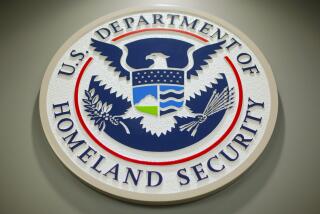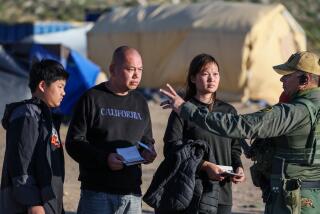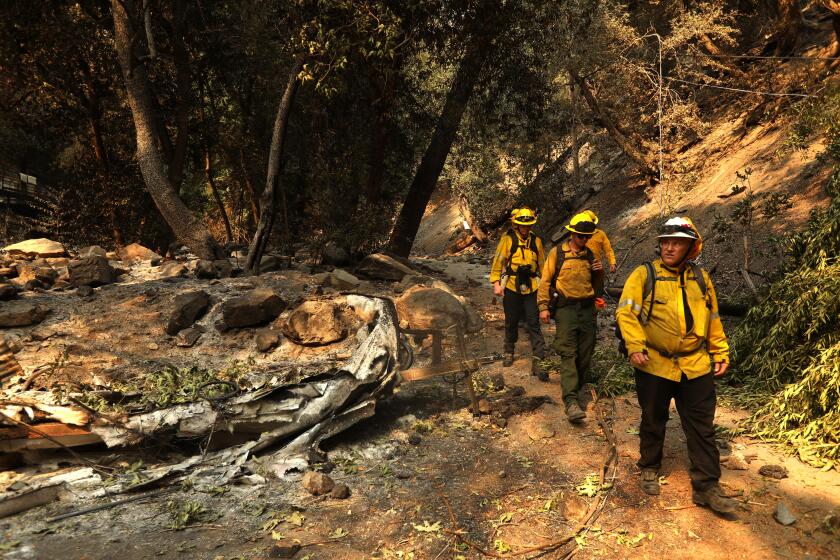Cuba limbo: Island-bound U.S. groups face licensing questions
Less than two years after President Obama set off a boom in Cuban travel by relaxing restrictions on “people-to-people” educational trips, Obama’s Treasury Department has again tightened restrictions, forcing cancellations and delays that have put dozens of educational group trips in limbo.
Though Treasury officials have said little about reasons for the move, it follows complaints by U.S. Sen. Marco Rubio (R-Fla.) about “rampant abuses” in the program, which is intended to foster “meaningful interaction between travelers and inviduals in Cuba.”
The slowdown apparently began May 10, when the U.S. Treasury Department stiffened the requirements for the renewable one-year licenses that allow educational tour operators into Cuba. Jeff Braunger, program manager for the Treasury Department’s Cuba Travel Licensing, said in an e-mail that the application process was tightened “because of reports we received” about licensed trips failing to meet government standards.
Tour operators say a handful of organizations have been granted renewal of their licenses, including Elderhostel’s Road Scholar program, Grand Circle Foundation and the UCLA Alumni Assn. That leaves dozens of others in doubt as the peak Cuban travel season approaches.
At least one major educational tour operator --Insight Cuba, which was criticized specifically by Rubio -- says its license has lapsed, forcing 22 layoffs. Smithsonian Journeys is going through with a Nov. 9 Cuba trip, but has canceled a Nov. 30 departure because its license (not yet renewed) will expire while the trip is in progress. Many other groups, including National Geographic Expeditions and Stanford’s alumni group, face the prospect of canceling trips if renewals are not granted soon.
“It’s odd,” said Janet Moore, owner of Long Beach-based Distant Horizons, a travel service provider that has operated people-to-people programs in Cuba for UCLA alumni, Harvard alumni, the Santa Barbara Museum of Art, the World Affairs Council of Philadelphia and about 15 other U.S. academic and arts groups in the last year.
She acknowledged that different groups might offer trips with different merits. But the programs she works with have comparably high standards, Moore said, and so far only the UCLA alumni group has had its license renewed.
For the moment, Moore said, it appears the license-renewal process “has just stopped.” If no more renewals are granted before the Cuban travel season begins in November, Moore said, dozens of groups will have to scrub their Cuban plans, and the number of Americans on Cuban people-to-people trips could fall from more than 10,000 in the last year to perhaps 3,000 next year.
Meanwhile at the Treasury Department, spokesman John Sullivan said Wednesday that “the program remains robust.” In an email the same day, Treasury Department Cuba Travel Licensing program manager Jeff Braunger said the department had issued about 140 licenses to people-to-people tour operators since early 2011 and that “we are doing our best to process both first-time applications and requesting to renew existing licenses… It is our goal to respond in a timely manner.”
Sullivan and Braunger did not address more detailed questions about reasons for the crackdown, the number of applications in the pipeline and the target timetable for processing them.
At Stanford University’s alumni travel organization, three Cuba trips are planned for 2013. But until officials renew Stanford Travel/Study’s license, the group’s website on Wednesday listed the Cuba trip as “in development” with details “not yet finalized.”
At National Geographic Expeditions, which has 12 Cuba trips planned between November and June 2013, the website on Wednesday labeled those trips “wait list only.” A note added that these trips “will operate subject to renewal of our People to People license by the U.S. Department of the Treasury.”
At Insight Cuba, the New Rochelle, N.Y.-based group that carried about 3,000 travelers to Cuba between August 2011, and June 2012, president Tom Popper said he had been trying in vain to renew his license since March 19.
The group filed to renew its license on that date, Popper said, then was told to refile the application under the new May 10 guidelines, and did so on June 26.
“What used to be 10-page application for us turned into a 174-page application,” Popper said.
On June 30, the group’s existing license expired. Since then, Popper said, Treasury staffers have asked for more information but haven’t said when or whether the license might be renewed. Unable to take deposits or arrange tours, Insight Cuba in August laid off 22 employees, Popper said.
Meanwhile at the UCLA Alumni Assn., “I know a lot of schools have applied, but I don’t know of any others getting a renewal,” said Christel Pailet, the association’s travel director. She said her group took about 200 travelers on six sold-out trips to Cuba in 2012, “more travelers than any other university in the U.S.”
The UCLA alumni group applied for renewal on April 16, Pailet said, then resubmitted on May 22 after the new guidelines were released. On July 20, the Treasury Department renewed the license through July 31, 2013, she said.
How detailed was her application? Eight pages.
“If I knew why we got renewed and others didn’t, I’d certainly tell you,” Pailet said.
The Treasury Department program explicitly excludes trips that are “primarily tourist-oriented.” Tour operators that fail to meet guidelines face civil penalties of up to $65,000 per violation. The department’s Office of Foreign Assets Controls (OFAC) regulates the trips, which have long been subject to political tides.
The Communist-run island nation has been largely off-limits since the U.S. announced a trade embargo in 1962. President Clinton approved people-to-people trips and loosened restrictions in the 1990s. President George W. Bush cut back the trips in the 2000s. President Obama loosened some restrictions for students and religious groups in early 2011 and others later.
But in late 2011, Rubio denounced the oversight of the program, quoting two Insight Cuba trip itineraries and their frequent mentions of salsa-dancing and meetings with Cuban government representatives.
Saying that the program “borders on indoctrination of Americans by Castro government officials,” Rubio called for reforms and said that confirmation hearing of Roberta S. Jacobson --Obama’s appointee to the post of assistant Secretary of State for Western Hemisphere Affairs -- could make a fine opportunity for more discussion of the subject.
On March 23, the Miami Herald reported that Rubio had dropped his opposition to Jacobson. On March 30, Jacobson was sworn in.
Six weeks later, OFAC tightened the people-to-people travel requirements. Since the handful of renewals that were granted between then and late July, Distant Horizons’ Moore said, she’s unaware of any further renewals.
Still, she added, “I’m an optimist. I’m thinking they’re going to come through.”
More to Read
Sign up for The Wild
We’ll help you find the best places to hike, bike and run, as well as the perfect silent spots for meditation and yoga.
You may occasionally receive promotional content from the Los Angeles Times.







